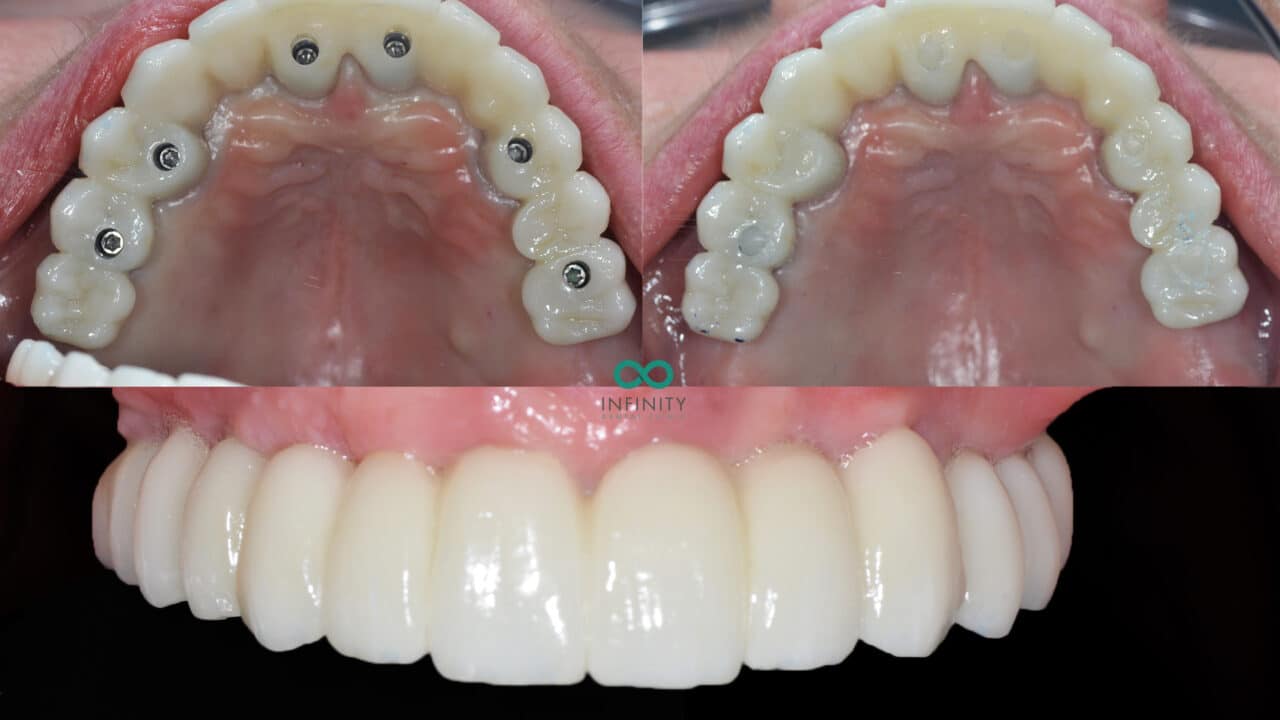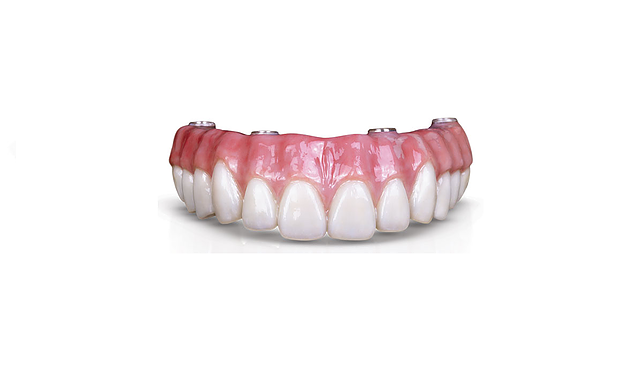See This Report about Dental Sense
See This Report about Dental Sense
Blog Article
Facts About Dental Sense Revealed
Table of ContentsThe Greatest Guide To Dental SenseThe 10-Second Trick For Dental SenseThe 8-Second Trick For Dental SenseThe Basic Principles Of Dental Sense
are medical gadgets surgically implanted into the jaw to bring back a person's capability to eat or their look. They supply assistance for man-made (phony) teeth, such as crowns, bridges, or dentures. When a tooth is shed as a result of injury or illness, a person can experience difficulties such as rapid bone loss, faulty speech, or modifications to eating patterns that result in pain.Dental implant systems include a dental implant body and dental implant abutment and might likewise include an abutment fixation screw. Root canal procedure. The oral implant body is surgically put in the jawbone in area of the tooth's root. The oral implant joint is usually affixed to the dental implant body by the joint fixation screw and expands through periodontals into the mouth to sustain the affixed synthetic teeth
(https://www.edocr.com/v/djpmklwo/matthewmusic33101/dental-sense)Framework of The Oral Implant System choosing dental implants, speak to your oral supplier about the possible benefits and dangers, and whether you are a candidate for the procedure. Points to think about: Your general wellness is an essential aspect in determining whether you are an excellent candidate for oral implants, how much time it will certainly take to recover, and the length of time the implant may stay in place.
Smoking may affect the recovery process and lower the long-lasting success of the implant. The healing process for the implant body may take numerous months or longer, during which time you generally have a momentary abutment instead of the tooth. the dental implant procedure: Very carefully comply with the dental health directions offered to you by your oral provider.
Some Known Facts About Dental Sense.
Implant failing can cause the requirement for one more surgery to fix or change the implant system. Brings back the capability to eat Restores aesthetic appearance Aids maintain the jawbone from shrinking due to bone loss Protects the health and wellness of the surrounding bone and gums Aids keep surrounding (close-by) teeth steady Boosts quality of life Damages to bordering natural teeth during dental implant placement Injury to the surrounding cells throughout surgical treatment, such as sinus opening Injury during surgery (for instance, fracture of bordering jawbone) Insufficient function, such as feeling like the teeth do not bite together generally A sensation that the tooth is loose or twisting in position arising from an abutment screw loosening Implant body failure (looseness of the implant body) as a result of systemic infection, which may be more probable in patients with unrestrained diabetes mellitus as a result of regional infection in bone and periodontals sustaining the dental implant body because of postponed recovery, which might be most likely in individuals who smoke Problem cleaning the gums around the implant, resulting in poor oral hygiene Unattended periodontal disease Post-surgical tingling as a result of nerve impingement or damages Always inform healthcare carriers and imaging specialists that you have oral implants prior to any kind of magnetic resonance imaging (MRI) or x-ray procedures.
FDA is not knowledgeable about any adverse events reported for MRI or x-ray treatments with dental implants. Dental implants systems are typically made from products that follow international agreement standards of the International Company for Standardization (ISO) or ASTM International. These standards have information of what makes a safe material.

A dental implant is a structure that changes a missing out on tooth. With screw-like gadgets, the surgeon inserts a dental implant right into the jawbone, and it acts as a support for a Click This Link synthetic tooth, called a crown.
All About Dental Sense
Some individuals are not qualified for oral implant surgical treatment. It is for oral doctors to operate people with: intense illnessuncontrollable metabolic diseasebone or soft tissue disease or infectionIf these problems are dealt with, a person can have the surgery. In, oral surgeons avoid from operating individuals with: If individuals with any one of the above undergo dental implant surgical treatment, there is a greater threat of the dental implant stopping working.

Dental implant surgical procedure is a customized procedure. It's not the very same for everyone. The complying with provides a basic introduction of what you can expect your dental professional, dental specialist, periodontist or prosthodontist to do: Place the implant surgically. Provide you time to recover. Affix the post and final crown, bridge or denture.
Next, your cosmetic surgeon will very carefully put the dental implant right into your jaw. Ultimately, your specialist will reposition your gums and shut the cut with stitches. If your dental implant is near the front of your mouth, your dental professional will certainly make a short-term tooth for you to put on till you heal. That method, you won't have a space in your smile while you recoup.
Our Dental Sense Statements
During the healing stage, your jawbone needs to fuse to the oral implant. This procedure can take anywhere from 3 to nine months.
As soon as your dental implant heals, your dental expert can connect the abutment (small adapter blog post) and your last repair (crown, bridge or denture). This typically takes regarding one hour to complete and may need a second minor surgical procedure. You shouldn't really feel any type of discomfort during your dental implant procedure due to the fact that your service provider will utilize medication to numb your gums.
Report this page